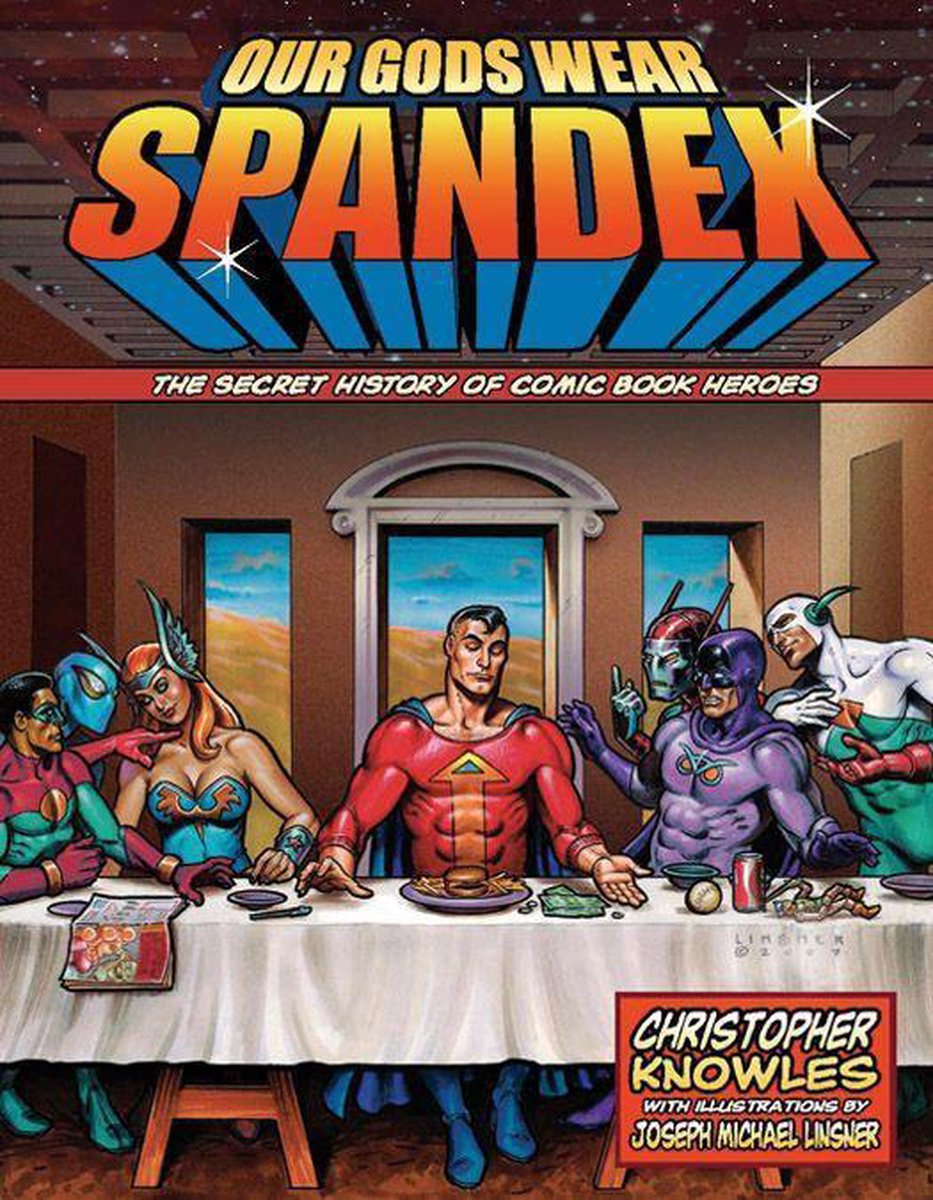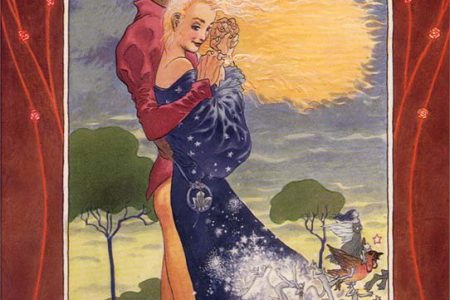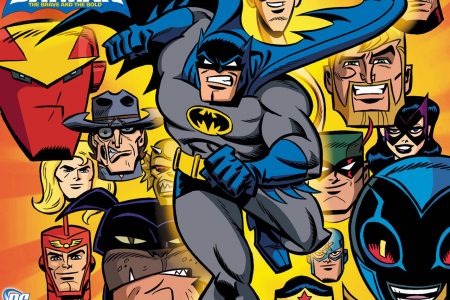Our Gods Wear Spandex: The Secret History of Comic Book Heroes
Written by Christopher Knowles and illustrations by Joseph Michael Linsner
This is a book that tries to unite all comic book superheroes into a common theme; in this case, that they are all derived from occult origins. This is an unusual idea, but I’m willing to read it if presented clearly and coherently. The first chapter is background, but does it with a slight bias from the author – do fans refer to the ‘Chromium Age’ for the dark times of comics in the mid-to-late 1990s? Knowles talks about Image and Acclaim ‘pushing a sort of crack-cocaine version of superheroes’, and blames Rob Liefeld who ‘developed a garish vocabulary of visual gimmicks calculated to excite gullible fans.’ So much for impartiality …
The second chapter is titled ‘Kingdom Come’, which indicates the next piece of bias: ‘In 1996, two creators decided they had had enough. One was Alex Ross, an astonishingly talented painter.’ His art makes ‘all other superhero comics look ugly and cynical by comparison.’ If that wasn’t enough, there is ‘His 1996 epic miniseries Kingdom Come’ and ‘Kingdom Come marked the end of the Chromium Age’ to indicate the fact that Alex Ross is the new messiah in the world of comic books. He also makes strange leaps: ‘It is probably no coincidence that two other pivotal creators, Alan Moore and Neil Gaiman, began their careers writing for Captain Marvel’s British counterpart, Marvelman.’ – erm, excuse me? He even blames The Dark Knight Returns as the catalyst for Liefeld and his ‘mob of conspirators’. His interpretation can be off, such as saying that the recent Formerly Known As The Justice League only parodied D-list characters because ‘Superman and Batman must be treated with the utmost solemnity.’
The essential tenet of the book is the symbolism of superheroes is from the pagan age, via secret cults of the late 19th century (Theosophists, Rosicrosians, Golden Dawn, etc.). Knowles provides a condensed history of well-known myths that are pertinent, plus some history before the creation of comic books, which is actually interesting. He talks abut secret society stuff (e.g. Freemasonry), the Victorian occult explosion, and occult superstars (Aleister Crowley and Harry Houdini). He also talks about the authors of the time (Conan Doyle, Verne, Wells, Stoker), the pulps (Tarzan, The Shadow, Doc Savage, etc.), and the pulp authors (Burroughs, Rohmer, Lovecraft, Howard, etc.) who all provided the inspiration that were the soup of early comic books.
The next section provides a brief overview of the start of comics and the early characters with their occult links (Mandrake the Magician, Doctor Occult), as well as the return of odd commentaries, such as the word ‘krypton’ comes from the Greek ‘kryptos’, meaning hidden or secret, and the Latin translation is ‘occult’ – well, there’s obviously a basis for a book there … The rest of the book is dedicated to splitting the pantheon of comic book heroes into broad categories that are based on occult origins – The Magic Men, Messiahs, Science Heroes, Golems (apparently Batman, Daredevil, Hulk and Punisher), The Amazons, The Brotherhood (i.e. all teams), and Wizards. I’m not convinced but it’s an interesting grouping method.
The book finishes with discussion of creators and their ties to the occult: Kirby, Englehart, Moore, Gaiman, Morrison, Mignola. But he leaves his hero worship for Alex Ross again – ‘By age 12, he was already more talented than most of the nineties hacks whose work wounded him so deeply.’ – plus the limitless and slightly embarrassing praise for Kingdom Come. I know that authors have a point of view, which must be a driving force behind the writing of their books, but it would be preferable if it didn’t overpower the thesis. As I said, I don’t think that all comic book heroes have their origins in the occult (which seems far too restricting in my opinion), but I did enjoy Knowles’ attempt to classify them in this way; the background stuff was an interesting read (Knowles’ prose is perfunctory but unpolished) and thesis is put forward in an easy to understand fashion. Shame about the Liefeld hating/Ross praising, though.




